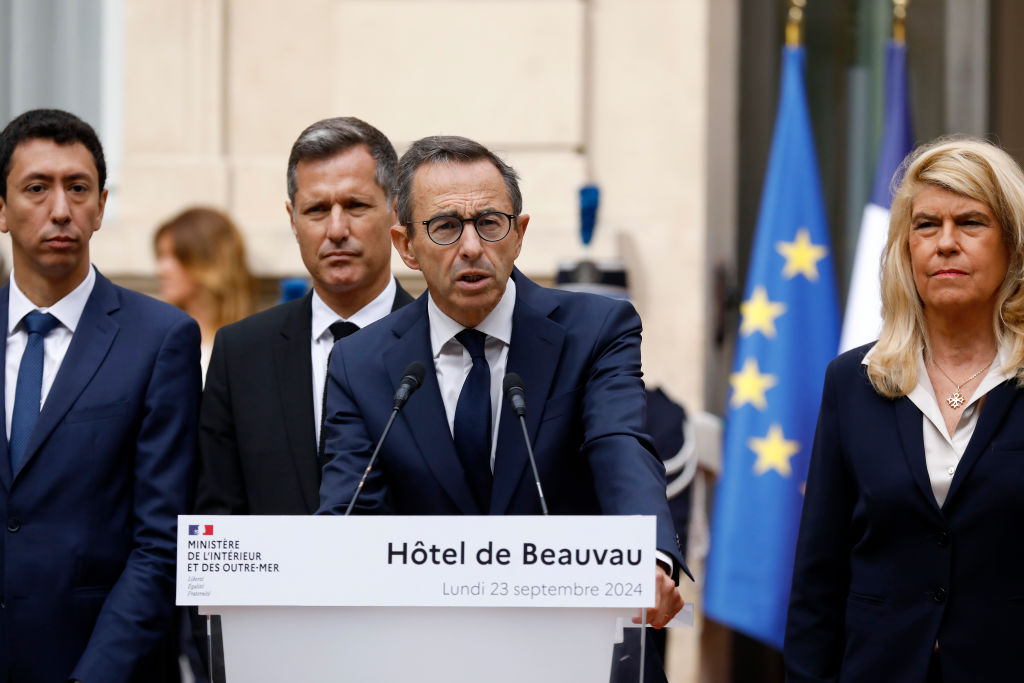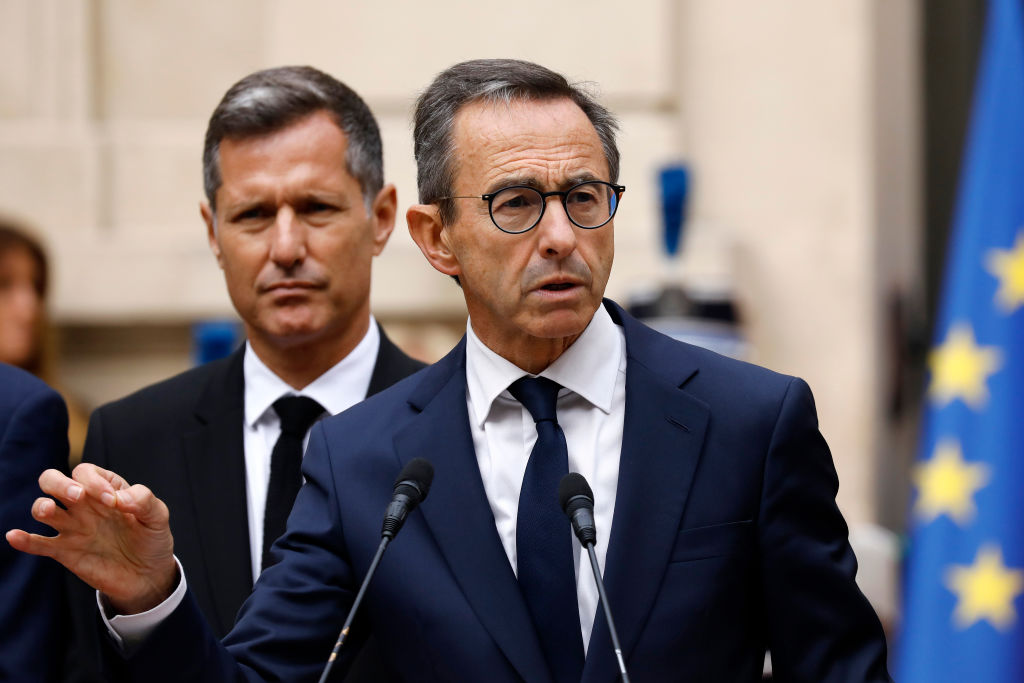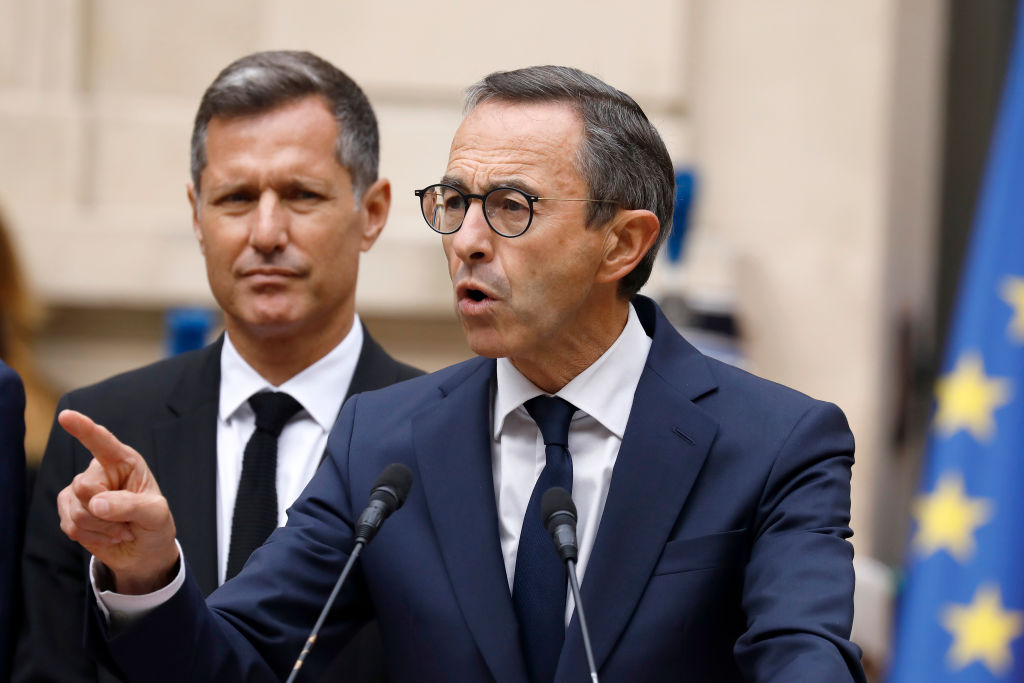Ahead of his visit to Marseille — a French city struggling with significant drug issues — France’s interior minister Bruno Retailleau has laid out his action plan to combat drugs trafficking.
For the 63-year-old minister, addressing the issue is crucial to prevent what he called the “Mexicanisation” of France.
In a November 6 interview with Le Journal du Dimanche, Retailleau cautioned about the rising influence of “narco-traffickers” in France.
“In some neighbourhoods, we’re seeing the beginnings of small-scale narco-enclaves. I’ve talked about the risk of Mexicanisation and I stand by that. Because narco-trafficking spares no territory and there are no limits to what narco-slaves can do,” he argued.
Retailleau pledged to dismantle the drug trade’s ecosystem with new legislative measures, strengthened border controls and the use of advanced technology.
“We will also set up task forces that, under the authority of the Prefects, will bring together multiple state services to conduct 360-degree inspections in these [drug trafficking] neighbourhoods,” he said.
“These task forces will be able, for example, to close businesses, monitor financial flows, and check residency permits. The idea is to tackle the traffickers’ entire ecosystem.”
Retailleau revealed that he would push the government to create an anti-narco-trafficking prosecutor’s office similar to the country’s counter-terrorism office.
“Like drug traffickers, Islamists know no jurisdictional boundaries. Having a public prosecutor’s office that acts on a national and even international level, with judges who know the networks and profiles inside out, would be a decisive weapon in the fight against organised crime,” he said.
Retailleau also vowed to target drug consumption by increasing the level of fixed fines for illegal possession.
Currently, the fixed fine for illegal drug use is €200, reduced to €150 if payment is made within 15 days and increased to €450 if full payment is not made within 45 days.
France’s tough stance on drugs contrasts with its German neighbours, which in August adopted the most lenient cannabis drug-driving limit in the European Union.
As of August 22, drivers are allowed to operate vehicles with cannabis in their systems as long as THC levels do not exceed 3.5 nanograms per millilitre of blood (ng/ml). This marks a significant increase from the previous limit of 1 ng/ml.https://t.co/yAZoyTdZJy
— Brussels Signal (@brusselssignal) August 26, 2024
Retailleau said he also wanted to target so-called “uber shit” services — a French slang term for illicit drug home delivery enterprises — with police patrols.
According to him, these types of services are starting to replace street-level drug dealing in certain areas.
The interior minister also positioned himself against supervised injection facilities, arguing they posed a safety risk to those in the neighbourhoods that allow them. Such services already exist in Paris and the northeast city of Strasbourg.
Consumers need to be aware of their responsibilities: smoking a joint or taking a coke rail means having blood on their hands.
According to him, such places may also actually encourage illegal drug use.
“We need to break down the recreational image that encourages people to experiment for the first time, and show in concrete terms the devastation caused by this scourge,” he said.
Critics have argued that such facilities were crucial for monitoring drug use in the country and identifying emerging threats.
Alizée Landais, a social worker intern in a Reception and Support Center for Harm Reduction for Drug Users (CARUUD) in Marseille, told Brussels Signal on November 7: “These places allow for important monitoring of the substances consumed, leading to a better understanding of the drugs present in France, which is crucial from a public health perspective.”
Retailleau’s war on drugs also involves a nationwide anti-drug PR campaign.
“We need to break the recreational image that encourages first-time use and concretely show the devastation caused by this plague. We will do this with the new national anti-drug plan. It will include a major communication campaign, with impactful images, to denounce drug consumption,” he said.
According to research published by the European Union Drug Agency (EUDA) in 2018, anti-drug advertising campaigns might not always be efficient.
“Campaigns might affect individuals differently, depending on their level of awareness. However, being informed might not have a direct effect on behavioural change” they wrote.
For Retailleau, drug trafficking is primarily a criminal issue rather than a public health issue.
“Caring does not mean accepting or excusing everything. Behind this discourse lies the culture of the excuse of a certain left, which always seeks to transform the guilty into victims,” he said, referring to the hard-left MEP Andy Kerbat, who was caught buying hard drugs in October.
Following the revelation, Kerbat released a statement on October 22 arguing that his drug use was due to “personal problems and psychological fragility” and announced he would enter rehabilitation.
At the time Retailleau said Kerbat’s actions were “intolerable”.
“As drug trafficking takes hold in France with its attendant violence, it is intolerable to see a member of parliament buying synthetic drugs from a street dealer. A member of parliament has a duty to set an example,” he said on October 22.
Retailleau’s call for exemplary behaviour from politicians mirrored the stance of Tom Van Grieken, leader of the Belgian Flemish hard-right party Vlaams Belang, who has advocated for regular drug tests for politicians.
The hard-right party Vlaams Belang has said it wants Belgian politicians to take an annual drug test because they serve as role models in society. https://t.co/O0AiEXyfc4
— Brussels Signal (@brusselssignal) June 3, 2024





